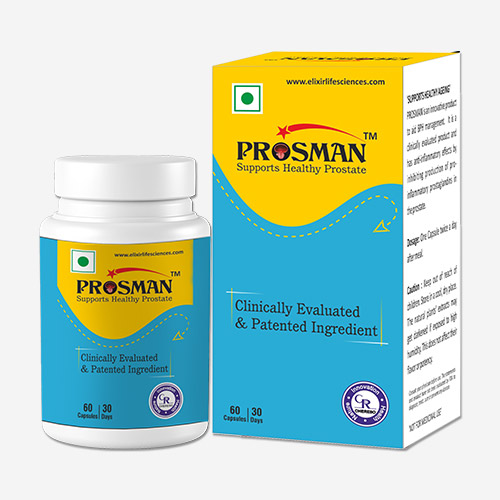BPH and Prostate Cancer both are unwanted & unexpected for men, and no one would ever want it to knock on their doors in this life. But the future isn’t in our hands, that’s why what you can do right now will deliver the result for the future, and that’ll keep your tomorrow fit and fine.
When it comes to BPH, it’s a harsh reality that 50% of the men will have it as a part of their life once they cross the age 50 or 60.
BPH or Benign Prostatic Hyperplasia is a condition (a part of ageing) that is natural and the symptoms of which start becoming visible once a man gets older. But most of the men often question whether BPH leads to prostate cancer? This is because it’s a somewhat inter-related condition. But what’s the reality? Let’s grasp some information to understand it better.
Prostate Cancer Vs BPH
Prostate Cancer is also a common health issue that triggers men’s lives as they grow older, just like BPH symptoms. Both Prostate Cancer and BPH affect the prostate gland (walnut-sized gland), and a man has to spend a life full of difficulties. In both conditions, the size of the prostate gland grows bigger.
However, if we only talk about BPH, it doesn’t spread, so it does not affect the other parts of the body. But on the other hand, if we shed light on Prostate Cancer, it spreads, and that may cause a significant problem in men’s life.
If you have a glimpse of symptoms associated with Prostate Cancer and BPH, you’ll discover how both affect a man’s body.
Such as BPH can make a man feel-
- An urgent need to urinate
- A need to urinate many times a day than usual
- A weak urine stream
- A dribbling urine stream
- A sudden urge to urinate at night
- Infrequent urination
Prostate cancer can make a man feel-
- Blood in Urine
- Burning sensation during urination
- Pain while urine
- Trouble in erection
- Painful ejaculation
- Blood in semen
- Less fluid at the time of ejaculation
However, the problems related to ejaculation can also be observed in BPH condition. Still, the most important thing you must pay heed to is, if you’re facing symptoms of Prostate cancer, then don’t forget to consult the doctor, because 1 in 41 men lose their life because of Prostate Cancer.
To Conclude- Does BPH Lead to Prostate Cancer or Not?
Both Prostate Cancer and BHP are considered unrelated conditions, and you don’t have any need to fear it if you start taking early care and some precautions. However, few people have the opinion that both are related, such as both are correlated with urinary problems, and in both, aging is considered as the primary reason for origin.
However, obesity is also a risk factor associated with both Prostate cancer and BPH, but there is no evidential proof that marks this statement as “whole truth” because, despite a few common symptom s, they are considered unrelated. Still, in most instances, you feel similar symptoms and thus ignore your health considering it’s BPH.
s, they are considered unrelated. Still, in most instances, you feel similar symptoms and thus ignore your health considering it’s BPH.
Similarly, if you’re also facing the same issues in your life or you’re sure that your life is also a part of BPH condition, then you shouldn’t overlook it. Research is still continued on this matter, and you shouldn’t delay taking the right step at the right time.
What to Do Then?
If you’re also seeking the best remedy that keeps your life away from BPH or prostate cancer related significant health issues, then no wonder, you should buy Prosman. It’s a clinically evaluated supplement. It is supported by 6 international patents and has no known side effects.
It’s an innovative product, made with Prunus Domestica extract and includes some powerful actives like Decoys I Ferulate and Beta-sitosterol. It’s a known anti-inflammatory. The product is designed to keep your prostate healthy and also considered best for the management of BPH and its symptoms. Therefore, if you’re too stressed about your health condition, then get this product.

 References-
References-
https://www.cancer.org/cancer/prostate-cancer/about/key-statistics.html
https://blog.dana-farber.org/insight/2018/10/bph-benign-prostate-hyperplasia-lead-prostate-cancer/
https://www.ncbi.nlm.nih.gov/pmc/articles/PMC4789344/
https://www.urologyhealth.org/urologic-conditions/prostate-cancer







